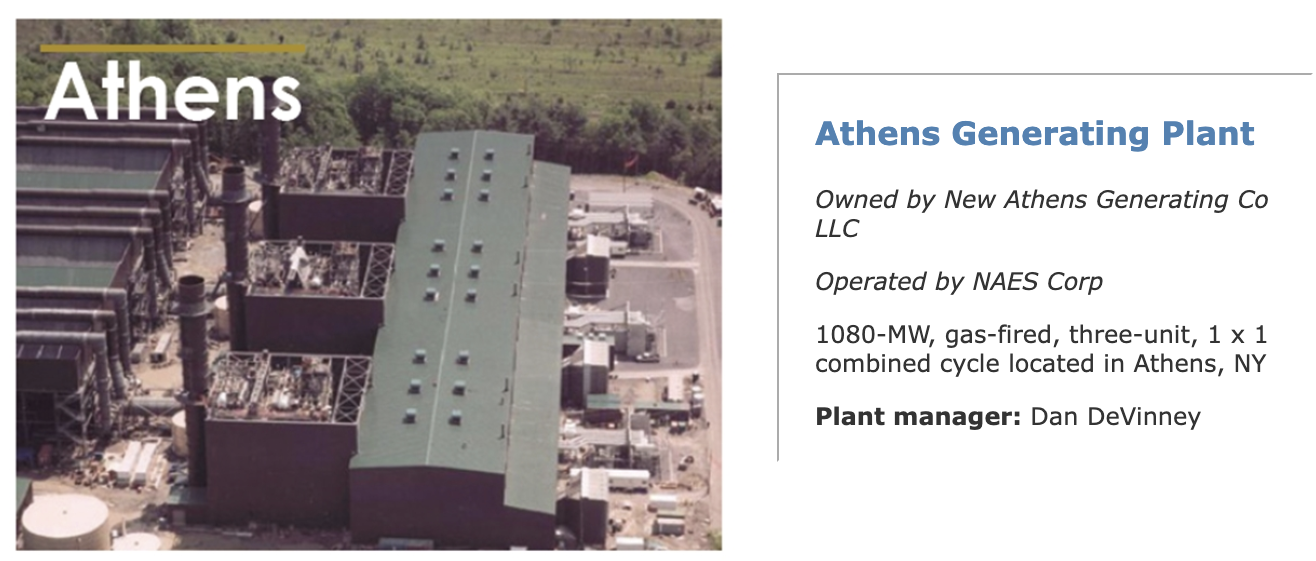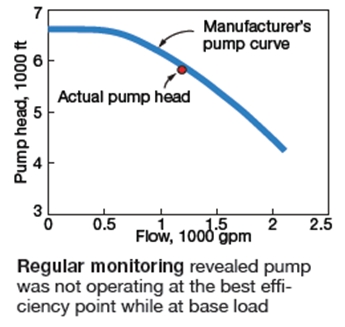Detecting pump issues before they cause outages
Best Practices Award

Challenge. Athens Generating Plant was designed without redundant boiler feed pumps, condensate pumps, or closed cooling-water pumps. The failure of any one of these critical pumps could lead to an extended forced outage. The challenge for the plant was to minimize the possibility of a forced outage caused by the loss of an unspared pump.
Solution. To address this challenge, plant staff implemented a pump monitoring program to detect and predict equipment issues before they result in unit downtime. The goal is to ensure pump reliability for the non-redundant pumps.
The pump monitoring program consists of five practices that assess pump condition:
1. Performance. Performance is continuously monitored by comparing real-time operating characteristics to design curves. Real-time pump conditions are plotted against the manufacturer’s data to determine if the unit is performing as expected.
2. Pump modeling. Performance pump capacity surveys are taken biannually to ensure the pumps are operating according to the manufacturer’s “pump curve.”
 3. Vibration analysis. Regular vibration readings are taken to ensure that there is no increase in vibration. Vibration analyses are conducted monthly or bimonthly.
3. Vibration analysis. Regular vibration readings are taken to ensure that there is no increase in vibration. Vibration analyses are conducted monthly or bimonthly.
4. Thermography. Scan the pump motors using thermography to check for hot connections or arcing.
5. Daily inspections. Daily pump inspections ensure there are no abnormal leaks or noises during normal operations.
Results. These techniques have given the plant the ability to identify abnormal pump operating characteristics and pump degradation, helping plant staff to quickly recognize problems with critical non-redundant pumps. For example, the plot shown in the figure indicated that the boiler feed pump was not operating at the best efficiency while at base load. As such, this boiler feed pump will be replaced during the upcoming annual outage, prior to failure.
Project participants:
Hank Tripp, plant engineer
Tom Birk, maintenance planner


